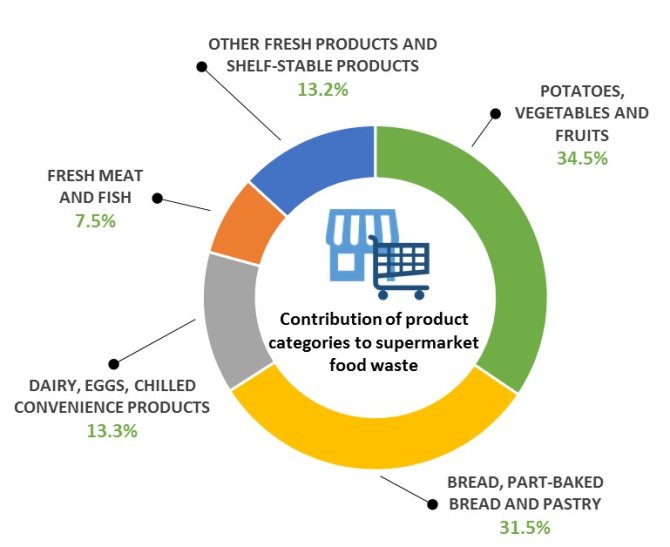
News
Dutch supermarkets provide insights into food waste
On average, 98.3% of the food offered in supermarkets in The Netherlands is sold. The remaining 1.7% of food (in kilograms) does not reach the consumer. These findings are based on research carried out by supermarkets, the Dutch Food Retail Association (CBL), Wageningen University & Research (WUR) and the Ministry of Agriculture, Nature & Food Quality, under the national charity Food Waste Free United (Samen Tegen Voedselverspilling). Their data provides the first clear insight into food waste within the Dutch supermarket sector. Supermarkets are leading the way and making The Netherlands the first country in the world to provide such detailed insights.
Five Dutch supermarket chains participated in the research: Albert Heijn (part of Ahold Delhaize), Aldi, Jumbo, Lidl and PLUS. Together, they make up around 77.5% of the Dutch market. Thanks to this research, we now have a better and more reliable understanding of the nature of food waste in the supermarket sector. The supermarket chains voluntarily reported on their unsold food products, and provided this data confidentially to WUR, which then performed the data analysis and extrapolation to the Dutch market as a whole.
The 1.7% of food waste in the supermarket sector consists of five product categories:

Food waste compared to sales
In order to establish the impact of the food waste, we need to look at the proportions of particular foods that go to waste relative to the volumes stocked. Relative to total stock, waste per category is: 7.7% for fresh bread, part-baked bread and pastry; 2.9% for fresh meat and fish; 2.7% for potatoes, vegetables and fruit; and 1.4% for dairy, eggs and chilled convenience products.
“Focused efforts to reduce food waste require us to have reliable data,” says Jennifer Muller of the CBL. “The findings of this self-monitoring of food waste are therefore very valuable. We now have evidence to support action targeted at specific product categories, which will help achieve our objective of reducing waste by 50% across the sector by 2030.”
A unique initiative
“With this baseline assessment and the annual reports that will follow, these retailers are the first to provide a transparent picture of food waste within their own businesses. This hasn’t been seen anywhere else in the world,” says Toine Timmermans of Food Waste Free United. “Retailers now have an understanding of their own food waste and can also better monitor the results of how they address this, in order to further reduce waste. This will accelerate the broader movement towards making more effective use of resources in the supply chain, and will gradually reduce average levels of food waste.”
About Samen Tegen Voedselverspilling
The Food Waste Free United ecosystem aims to prevent and reduce food loss and waste in the food supply chain, and to promote total resource use. It brings together the private sector, government, NGOs and research institutes to join forces in the reduction of food waste. Everyone involved has a common objective of making The Netherlands one of the first countries in the world to reduce food waste by half. This will make us a trailblazer and an example to the rest of the world in achieving target 12.3 of the Sustainable Development Goals.
This baseline assessment is an initiative led by the CBL and is a component of the national food waste strategy and action plan. The research was carried out by Wageningen Food & Biobased Research and was funded by the Ministry of Agriculture, Nature and Food Quality.
About the CBL
The Dutch Food Retail Association (CBL) represents the interests of the supermarket sector and food service companies in The Netherlands. The food sector represents more than 10% of Gross National Product. The supermarket sector employs more than 300,000 people, making it one of the largest sources of employment in The Netherlands. Every day, four million consumers shop in supermarkets represented by the CBL.